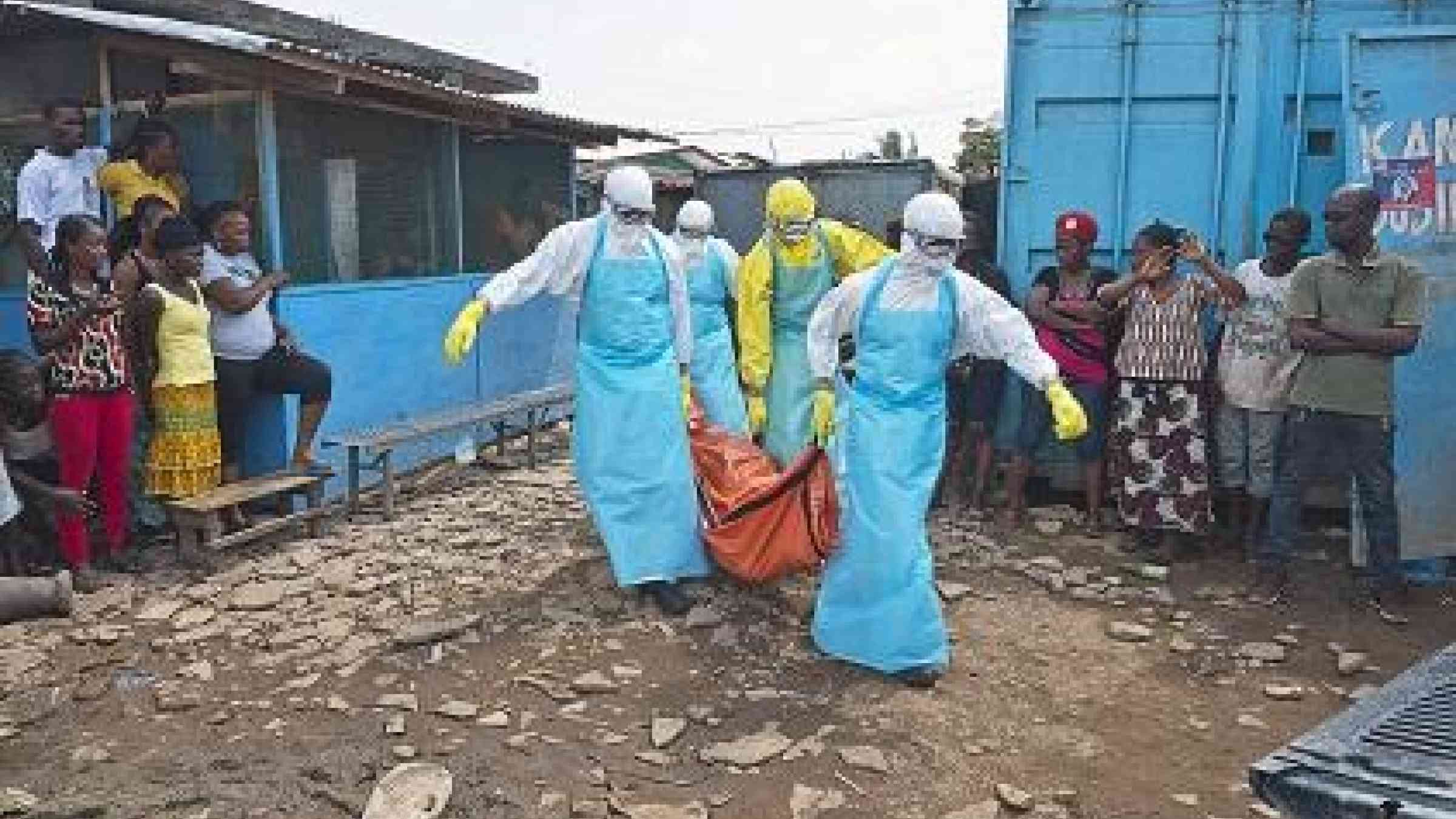Ebola countries implement Sendai Framework

NAIROBI, August 8, 2016 - Two years after the largest ever outbreak of Ebola, the affected West African countries are moving to reduce mortality from future disaster events by bringing disaster risk management and health closer together.
The Ebola pandemic which started in March 2014 claimed a total of 11,310 lives in Guinea, Liberia and Sierra Leone and a further 15,227 laboratory confirmed cases were reported as of April 2016. It also resulted in significant economic losses.
In line with the global plan for reducing disaster risk and health losses - the Sendai Framework for Disaster Risk Reduction - the three countries are shifting their efforts from the emergency phase to a long-term effort to make their health systems resilient to future events.
The project is called “Accelerating implementation of the Sendai Framework in Ebola affected countries with risk-informed Health system” and seeks to integrate health and disaster risk management. Key goals are to improve risk profiling and strengthen disaster risk governance.
The funding comes from the Government of Japan and the project will be implemented by United Nations Office for Disaster Risk Reduction (UNISDR) with support from the United Nations Development Programme (UNDP) and the World Health Organization (WHO).
Technical workshops on national disaster loss databases were held last month in Freetown, Sierra Leone, and Monrovia, Liberia, and were attended by over 100 participants from government, health services, national disaster management agencies, academia and UN agencies.
A further workshop will be held in Guinea later this year. The workshop focus was on improving participants’ risk knowledge by building national disaster loss accounting systems which include health-related disaster losses and relevant disaggregated data and statistics.
The countries will also incorporate health hazards and threats into national risk profiling. In Sierra Leone, new data on Ebola and other relevant epidemics and health impact indicators are being integrated in the previously existing disaster database.
“The project is a practical application of the health component of the Sendai Framework. Through it, countries will integrate disaster risk management and health in National Platforms for Disaster Risk Reduction and will record and share information on disaster impacts on human health. Data will be disaggregated by age, gender and disability” said Ms. Chadia Wannous, UNISDR Senior Health Advisor.
UN Resident Coordinator in Sierra Leone, Mr. Sunil Saigal, welcomed the risk-informed approach of the project, as well its regional dimension. He also pointed to the synergies between the Ebola Recovery Plan of the country and the Sendai Framework in areas related to health emergencies.
Mr. Jonathan Wordsworth, from the Liberian National Disaster Relief Commission, hailed the capacity-building workshop as a key element in the new disaster risk governance arrangements that the Government is putting in place.
The second component of the project will focus on strengthening disaster risk governance by enhancing cooperation between disaster risk management institutions and health authorities, through establishment and strengthening of national disaster risk reduction platforms, with the involvement of the health sector.
UNISDR will also provide support in the preparation of disaster risk reduction plans and the integration of health into those plans. In Sierra Leone, a multi-sectoral National Disaster Risk Reduction Platform is in place. Lower administrative units known as chiefdoms are testing Disaster Management Committees with a view to decentralizing disaster risk management to the local level. Handbooks for disaster management have also been developed, to strengthen capacity for response.
In Liberia, a new Law has been approved by the Senate to create the National Disaster Management Agency, chaired by the Ministry of Internal affairs. It will have a broader mandate to cover the entire scope of Disaster Risk Reduction, including Coordination, Risk Knowledge Management, Risk Identification, Preparedness and Response.
In March 2017, the project will wrap up with a leadership development workshop where peers from targeted countries will share experiences and discuss mainstreaming of disaster risk reduction and resilience building in both the health sector and in the development plans of the countries.
Preliminary results of the project will also be shared at the 6th Session of the Africa Regional Platform for Disaster Risk Reduction scheduled for November this year in Mauritius.